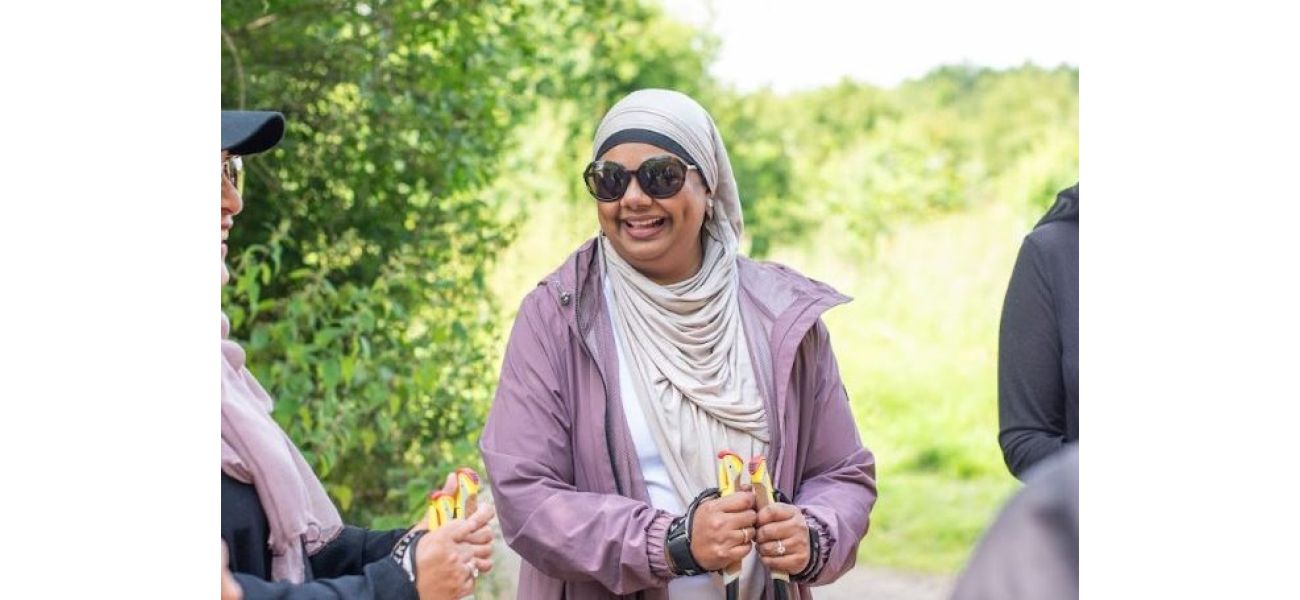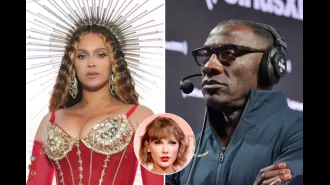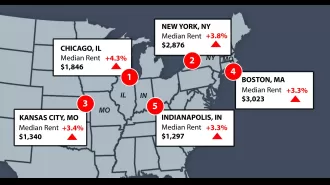I wanted to join PE class, but was excluded.
Women of various backgrounds, including Muslim women, often feel excluded from sports and physical activity.
November 2nd 2024.

Growing up as a Muslim girl in a small coastal town near Aberdeen, I quickly discovered that sports were my way of connecting with others and building friendships. I loved the thrill of playground games like Bulldog and tag, where my speed made me a natural pick. I thrived in the camaraderie these games provided. But when I started secondary school, I noticed that my cultural and religious beliefs were often not taken into consideration.
As a Muslim girl, I felt uncomfortable wearing certain sports kits, such as netball skirts. However, my school's strict PE uniform policy did not leave any room for alternatives. Despite my father's efforts to intervene and request that I be allowed to wear jogging bottoms, the school refused, stating that it was not part of the uniform. This meant that I missed out on many lessons and was excluded from sports teams. It not only hindered my progress but also affected my confidence. I felt like the only connection I had to the sports I loved was through watching them on TV.
But when I was 14, my family moved to London, and I was eager to reconnect with sports. I joined a local women's netball team, hoping to find a sense of community. However, once again, my adherence to my religious and cultural beliefs set me apart. I constantly found myself on the outskirts, struggling to fit in rather than being genuinely included. I felt othered by the group, and their clique made me feel unwanted. After just three sessions, I quit in frustration.
All I wanted was to have an inclusive space to do sports, to feel like I was part of a community rather than an outsider. But if that didn't exist, then I decided I would create one. In 2008, I started my own basketball club, the Muslimah Sports Association. I secured a venue, a coach, and began advertising by reaching out to community leaders, distributing flyers, and using word of mouth to spread the news.
The first turnout was disheartening, with only me and the coach showing up. Even my friends and community members were not supportive of my new venture. They told me that no one else seemed to miss sports as much as I did and that people were too busy with family and other responsibilities. It was hurtful to hear this, especially since I was spending a lot of time away from my family to try and establish this initiative. But I knew that there were others who shared my passion for sports, as research from This Girl Can showed that the majority of Asian women in London wanted to be more active outdoors but faced barriers such as lack of time and access to green spaces.
Determined, I continued to sell the club to anyone who would listen. And gradually, what started as a challenging endeavor blossomed into something meaningful. More and more women started showing up week after week, and they even started bringing friends along. Our sessions became more than just basketball games; they turned into a safe space for Muslim women in my community to be themselves, away from the constraints of daily life. It was incredibly rewarding to see it all come together. Many of these women were experiencing sports for the first time, and it was fulfilling to provide them with an opportunity they hadn't had before.
The wider community also started to appreciate the impact of sports, not just on physical but also mental health. Their enthusiasm and progress reminded me of the transformative power of sports for personal growth and community connection. Our success led to the formation of the Muslimah Sports Association, a non-profit organization that inspires Muslim women to get involved in sports. It now includes not only basketball but also badminton.
Today, MSA has evolved into a vibrant organization that runs a variety of sports sessions and consults with smaller organizations to set up similar initiatives. Our goal is to become a national governing body for Muslim women in sports, ensuring that they have representation beyond just participation in coaching and leadership roles.
Through this journey, I have learned two important things. Firstly, sports are a powerful tool for inclusion and empowerment. And secondly, there is still a lot of work to be done. Muslim women and women from diverse backgrounds often find themselves on the outskirts of sports and exercise. My own experience with a netball team that made me feel othered and excluded due to my hijab is just one example. It is crucial that we continue to fight against these barriers and create spaces that cater to all, challenging stereotypes that limit participation. Do you have a story to share? Let us know by emailing James.email. We would love to hear your thoughts in the comments below.
As a Muslim girl, I felt uncomfortable wearing certain sports kits, such as netball skirts. However, my school's strict PE uniform policy did not leave any room for alternatives. Despite my father's efforts to intervene and request that I be allowed to wear jogging bottoms, the school refused, stating that it was not part of the uniform. This meant that I missed out on many lessons and was excluded from sports teams. It not only hindered my progress but also affected my confidence. I felt like the only connection I had to the sports I loved was through watching them on TV.
But when I was 14, my family moved to London, and I was eager to reconnect with sports. I joined a local women's netball team, hoping to find a sense of community. However, once again, my adherence to my religious and cultural beliefs set me apart. I constantly found myself on the outskirts, struggling to fit in rather than being genuinely included. I felt othered by the group, and their clique made me feel unwanted. After just three sessions, I quit in frustration.
All I wanted was to have an inclusive space to do sports, to feel like I was part of a community rather than an outsider. But if that didn't exist, then I decided I would create one. In 2008, I started my own basketball club, the Muslimah Sports Association. I secured a venue, a coach, and began advertising by reaching out to community leaders, distributing flyers, and using word of mouth to spread the news.
The first turnout was disheartening, with only me and the coach showing up. Even my friends and community members were not supportive of my new venture. They told me that no one else seemed to miss sports as much as I did and that people were too busy with family and other responsibilities. It was hurtful to hear this, especially since I was spending a lot of time away from my family to try and establish this initiative. But I knew that there were others who shared my passion for sports, as research from This Girl Can showed that the majority of Asian women in London wanted to be more active outdoors but faced barriers such as lack of time and access to green spaces.
Determined, I continued to sell the club to anyone who would listen. And gradually, what started as a challenging endeavor blossomed into something meaningful. More and more women started showing up week after week, and they even started bringing friends along. Our sessions became more than just basketball games; they turned into a safe space for Muslim women in my community to be themselves, away from the constraints of daily life. It was incredibly rewarding to see it all come together. Many of these women were experiencing sports for the first time, and it was fulfilling to provide them with an opportunity they hadn't had before.
The wider community also started to appreciate the impact of sports, not just on physical but also mental health. Their enthusiasm and progress reminded me of the transformative power of sports for personal growth and community connection. Our success led to the formation of the Muslimah Sports Association, a non-profit organization that inspires Muslim women to get involved in sports. It now includes not only basketball but also badminton.
Today, MSA has evolved into a vibrant organization that runs a variety of sports sessions and consults with smaller organizations to set up similar initiatives. Our goal is to become a national governing body for Muslim women in sports, ensuring that they have representation beyond just participation in coaching and leadership roles.
Through this journey, I have learned two important things. Firstly, sports are a powerful tool for inclusion and empowerment. And secondly, there is still a lot of work to be done. Muslim women and women from diverse backgrounds often find themselves on the outskirts of sports and exercise. My own experience with a netball team that made me feel othered and excluded due to my hijab is just one example. It is crucial that we continue to fight against these barriers and create spaces that cater to all, challenging stereotypes that limit participation. Do you have a story to share? Let us know by emailing James.email. We would love to hear your thoughts in the comments below.
[This article has been trending online recently and has been generated with AI. Your feed is customized.]
[Generative AI is experimental.]
0
0
Submit Comment





